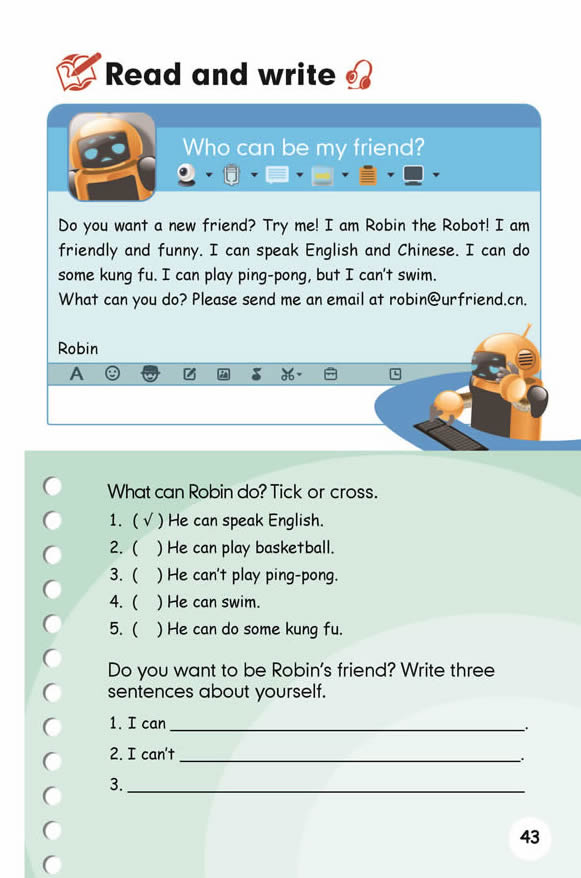2020-07-29 17:24:54 ЙўЖћБѕШЫЪТПМЪдЭј //haerbin.huatu.com/ ЮФеТРДдДЃККкСњНЛЊЭМ
ЁЁЁЁЁОЕМЖСЁПЙўЖћБѕШЫЪТПМЪдЭјЬсЙЉвдЯТаХЯЂЃК2020ФъКкСњНЪЁНЬЪІеаЦИФЃФтСЗЯАаЁбЇгЂгябЇПЦжЊЪЖФЃФтЬтЃЈЫФЃЉЃЌИќЖрзЪбЖЧыЙизЂКкСњНЛЊЭМЮЂаХЙЋжкКХ(hljhtjy)ЃЌЙўЖћБѕЪаХрбЕзЩбЏЕчЛАЃК0451-88882340ЁЃ
ЁЁЁЁЕквЛНкЃКЕЅЯюбЁдёЬт ДгУПЬтЫљИјЕФ AЁЂBЁЂCЁЂD ЫФИібЁЯюжаЃЌбЁГізюМббЁЯюЁЃ(БОДѓЬтЙВ 10аЁЬтЃЌУПаЁЬт 1 ЗжЃЌЙВ 10Зж)
ЁЁЁЁ1. The shocking news mad me realize ________ terrible problems we would face.
ЁЁЁЁA. whatB. howC. thatD. why
ЁЁЁЁ2. I’m sorry I didn’t phone you, but I’ve been very busy_______ the past couple of weeks.
ЁЁЁЁA. beyondB. withC. amongD. over
ЁЁЁЁ3. How can you expect him to make any progress _____you never give him a chance to have a try?
ЁЁЁЁA. whenB. unlessC. even thoughD. until
ЁЁЁЁ4. -Is there _______ here?
ЁЁЁЁ-No, Bob and Helen have asked for leave.
ЁЁЁЁA. anybody B. everybody C. somebody D. nobody
ЁЁЁЁ5. John opened the door. There _____ he had never seen before.
ЁЁЁЁA. a girl did standB. a girl stoodC. did a girl standD. stood a girl
ЁЁЁЁ6. Maybe if I ______ science, and not literature then, I would be able to give you more help.
ЁЁЁЁA. studiedB. would studyC. had studiedD. was studying
ЁЁЁЁ7. With Father’s Day around the corner, I have taken some money out of the bank ______ presents for my dad.
ЁЁЁЁA. buy B. to buy C. buying D. to have bought
ЁЁЁЁ8. The longest river in Britain is _________.
ЁЁЁЁA. the Clyde B. the Mersey C. the Severn D. the Thames
ЁЁЁЁ9. Henry David Thoreau’s work, ____________, has always been regarded as a masterpiece of the New England Transcendental Movement.
ЁЁЁЁA. Walden B. The Pioneers C. Nature D. Song of Myself
ЁЁЁЁ10. The morpheme “vision”in the word “television”is a (an) ___________.
ЁЁЁЁA. bound morpheme B. bound form C. inflectional morpheme D. free morpheme
ЁЁЁЁЕкЖўНкЃКЭъаЮЬюПе дФЖСЯТУцЖЬЮФЃЌеЦЮеЦфДѓвтЃЌШЛКѓДгИїЬтЫљИјЕФЫФИібЁЯюжаЃЌбЁГізюМббЁЯюЁЃ(БОДѓЬтЙВ 10аЁЬтЃЌУПаЁЬт 1ЗжЃЌЙВ 10Зж)
ЁЁЁЁMost people hate rock music. While I’m not an unreasonable person __11__ nature, two striking and personal experiences of rock music during the past 2 weeks have persuaded me that it has become a duty for those of us with enough common sense to see its __12__dangers to point them out. My first experience-perhaps a minor one, but highly symptomatic-was the realization that if I spoke to my teenage son when he was listening to rock music __13__ headphone, he replied in an unnaturally loud voice, __14__ there was something wrong with his hearing. The second occurred when I went with him to a “concert” and witnessed for myself what these affairs were like. Till I went to concert, I had always __15__ the “live and let live” attitude that rock music was simply not my taste but that other people had __16__right to enjoy it if it was theirs. But what I saw and heard convinced me that we were allowing something very powerful to take __17__ of the younger generation. In the first place, I noticed a collective madness, __18__ by the noise level. But secondly, and far more dangerously, I observed that after a time everyone was carried along by the noise, and gave up his individuality. By the end I was in the middle of a faceless crowd who clapped and __19__ and jumped around like monkeys. It was the most degrading human __20__ I have ever had the misfortune to witness, and I seriously believe that in time to come our present younger generation would thank us if we managed to put a stop to it now.
ЁЁЁЁ11. A. in B. of C. by D. with
ЁЁЁЁ12. A. temporary B. obvious C. apparent D. potential
ЁЁЁЁ13. A. by B. through C. behind D. over
ЁЁЁЁ14. A. as if B. for C. since D. in case
ЁЁЁЁ15. A. adapted B. adopted C. taken D. accepted
ЁЁЁЁ16. A. some B. all C. no D. every
ЁЁЁЁ17. A. attention B. possession C. charge D. care
ЁЁЁЁ18. A. bringing about B. brought about
ЁЁЁЁC. bringing forward D. brought forward
ЁЁЁЁ19. A. sat B. stood C. paced D. stamped
ЁЁЁЁ20. A. situation B. scene C. spectacle D. stage
ЁЁЁЁЕкШ§НкЃКдФЖСРэНтЬтдФЖСЯТУцЕФЖЬЮФЃЌДгУПЬтЫљИјЕФЫФИібЁЯю AЁЂBЁЂC КЭ D жабЁГізюМббЁЯюЁЃ(БОДѓЬтЙВ 10 аЁЬтЃЌУПаЁЬт 1 ЗжЃЌЙВ 10 Зж)
ЁЁЁЁA
ЁЁЁЁHow is it that siblingscan turn out so differently? One answer is that in fact each sibling grows up in a different family. The firstborn is, for a while, an only child, and therefore has a completely different experience of the parents than those born later. The next child is, for a while, the youngest, until the situation is changed by a new arrival. The mother and father themselves are changing and growing up too. One sibling might live in a stable and close family in the first few years; another might be raised in a family crisis, with a disappointed mother or an angry father.
![]()
ЁЁЁЁSibling competition was identified as an important shaping force as early as in 1918. But more recently, researchers have found many ways in which brothers and sisters are a lasting force in each others’ lives. Dr. Annette Henderson says firstborn children pick up vocabularymore quickly than their siblings. The reason for this might be that the later children aren’t getting the same one-on-one time with parents. But that doesn’t mean that the younger children have problems with language development. Later-borns don’t enjoy that much talking time with parents, but instead they harvest lessons from bigger brothers and sisters, learning entire phrases and getting an understanding of social concepts suchas the difference between “I” and “me”.
![]()
ЁЁЁЁA Cambridge University study of 140 children found that siblings created a rich world of play that helped them grow socially. Love-hate relationships were common amongthe children. Even those siblings who fought the most had just as much positive communication as the other sibling pairs.
ЁЁЁЁOne way children seek more attention from parents is by making themselves different from their siblings, particularly if they are close in age. Researchers have found that the first two children in a family are typically more different from each other than the second and third. Girls with brothers show their differences to a maximum degree by being more femininethan girls with sisters. A 2003 research paper studied adolescents from 185 families over two years, finding that those who changed to make themselves different from their siblings were successful in increasing the amount of warmth they gained from their parents.
ЁЁЁЁ21. The underlined part “in a different family” (in Para. 1) means “_______”.
ЁЁЁЁA. in a different family environmentB. in a different family tradition
ЁЁЁЁC. in different family crisesD. in different families
ЁЁЁЁ22. In termsof language development, later-borns ________.
ЁЁЁЁA. get their parents’ individual guidance B. learn a lot from their elder siblings
ЁЁЁЁC. experience a lot of difficulties D. pick up words more quickly
ЁЁЁЁ23. What was found about fights among siblings?
ЁЁЁЁA. Siblings hated fighting and loved playing.
ЁЁЁЁB. Siblings in some families fought frequently.
ЁЁЁЁC. Sibling fights led to bad sibling relationships.
ЁЁЁЁD. Siblings learned to get on together from fights.
ЁЁЁЁ24. The word “feminine” (in Para. 4) means_______.
ЁЁЁЁA. having qualities of parents B. having qualities of women
ЁЁЁЁC. having defensive qualitiesD. having extraordinary qualities
ЁЁЁЁB
ЁЁЁЁI left university with a good degree in English Literature, but no sense of what I wanted to do. Over the next six years, I was treading water,just trying to earn an income. I tried journalism, but I didn’t think I was any good, then finance, which I hated. Finally, I got a job as a rights assistant at a famous publisher. I loved working with books, although the job that I did was dull.
ЁЁЁЁI had enough savings to take a year off work, and I decided to try to satisfy a deep-down wish to write a novel. Attending a Novel Writing MA course gave me the structure I needed to write my first 55,000 words.
ЁЁЁЁIt takes confidence to make a new start — there’s a dark period in-between where you’re neither one thing nor the other. You’re out for dinner and people ask what you do, and you’re too ashamed to say, “Well, I’m writing a novel, but I’m not quite sure if I’m going to get there.” My confidence dived. Believing my novel could not be published, I put it aside.
ЁЁЁЁThen I met an agent who said I should send my novel out to agents. So, I did and, to my surprise, got some wonderful feedback. I felt a little hope that I might actually become a published writer and, after signing with an agent, I finished the second half of the novel.
ЁЁЁЁThe next problem was finding a publisher. After two-and-a-half years of no income, just waiting and wondering, a publisher offered me a book deal — that publisher turned out to be the one I once worked for.
ЁЁЁЁIt feels like an unbelievable stroke of luck — of fate, really. When you set out to do something different, there’s no end in sight, so to find myself in a position where I now have my own name on a contract of the publisher — to be a published writer — is unbelievably rewarding.
ЁЁЁЁ25. What does the underlined part in Paragraph 1 mean?
ЁЁЁЁA. I was waiting for good fortune.
ЁЁЁЁB. I was trying to find an admirable job.
ЁЁЁЁC. I was being aimless about a suitable job.
ЁЁЁЁD. I was doing several jobs for more pay at a time.
ЁЁЁЁ26. The author decided to write a novel ______ .
ЁЁЁЁA. to finish the writing course.
ЁЁЁЁB. to realize her own dream.
ЁЁЁЁC. to satisfy readers’ wish.
ЁЁЁЁD. to earn more money.
ЁЁЁЁ27. How did the writer feel halfway with the novel?
ЁЁЁЁA. Disturbed. B. Ashamed. C. Confident. D. Uncertain.
ЁЁЁЁ28. What does the author mainly want to tell readers in the last paragraph?
ЁЁЁЁA. It pays to stick to one’s goal.
ЁЁЁЁB. Hard work can lead to success.
ЁЁЁЁC. She feels like being unexpectedly lucky.
ЁЁЁЁD. There is no end in sight when starting to do something.
ЁЁЁЁC
ЁЁЁЁThere is a little debate about the first development of the energy system of the 22nd century —that most of the energy produced on a large scale will be in the form of electric power. Thus, most present concepts for major long-term energy sources (solar, geothermal, fusion) are based upon electric power production at central plants.
ЁЁЁЁThe second major development is the potential use of hydrogen as both a basic fuel to replace
ЁЁЁЁnature gas and as part of a general system to convert, store and transmit electric energy over long district by fuel cells, or it could be used directly as a fuel for commercial, industrial or transportation purposes.
ЁЁЁЁAlthough hydrogen seems likely to play a major role in the futures as a form of energy transport and storage, other processes may also be useful. Here we note only two possibilities.
ЁЁЁЁFlywheels: It appears to be workable to construct flywheels of almost any needed size that would be efficient converters (93-95 percent) in first storing and the releasing electric power. In addition, the kinetic energy of rotation is easily converted to alternating electric power. But the engineering is at an early stage of development, and a decade or more may pass before this potential can be reliably estimated.
ЁЁЁЁBatteries and fuel cells: some of the many batteries being developed today look quite promising.
ЁЁЁЁWithin a decade or two, a battery-operated electric auto might even become competitive with today’s vehicles, at least for driving ranges up to 200 miles. An electric automobile would be pollution-free, and would probably be more-efficient than the internal-combustion engine.
ЁЁЁЁA fuel cell (which may be consider a hydride battery) with about 40 percent conversion efficiency is expected to enter power production on a large scale with about five years. Unlike steam-powered generators, fuel cells can be made large or small and their efficiency in operation is essentially independent the loading. Thus they may avoid most of the distribution costs of electric power as well as provide pollution-free power and offer opportunities for using the “waste heat”effectively.
ЁЁЁЁ29. The energy we use most totally is________.
ЁЁЁЁA. solar energy B. geothermal energy
ЁЁЁЁC. hydrogen D. electricity
ЁЁЁЁ30. From the passage we can see that the fuel cells might be something________.
ЁЁЁЁA. with the electric energy stored in it without pollution
ЁЁЁЁB. in which chemicals are contained
ЁЁЁЁC. in which certain fuel such as hydrogen are filled
ЁЁЁЁD. like a small steam generator
ЁЁЁЁЗЧбЁдёЬтВПЗж
ЁЁЁЁзЂвтЪТЯю:
ЁЁЁЁгУКкЩЋзжМЃЕФЧЉзжБЪЛђИжБЪНЋД№АИаДдкД№ЬтжНЩЯЃЌВЛФмД№дкЪдЬтОэЩЯЁЃ
ЁЁЁЁЕкЫФНкЃКзжФИКЭЕЅДЪзЂвє(БОДѓЬтЙВ 10 аЁЬтЃЌУПаЁЬт 0. 5 ЗжЃЌЙВ 5 Зж)
ЁЁЁЁ31. E ( )32. C ( )33. H ( )
ЁЁЁЁ34. liquid ( )35. bottle ( )36. spouse ( )
ЁЁЁЁ37. holiday ( )38. mice ( )39. oxen ( )
ЁЁЁЁ40. plant ( )
ЁЁЁЁЕкЮхНкЃКЬюПеЬт(БОДѓЬтЙВ 5 аЁЬтЃЌУПаЁЬт 1 ЗжЃЌЙВ 5 Зж)
ЁЁЁЁ41. Planning is important for both novice and experienced teaches before going into the classroom. A good lesson plan has the feature of ______, which means preparing some extra and alternative tasks and activities as the class does not always go according to the plan so that teachers always have the options to cope with the unexpected situations rather than being the slaves of written plans or our methodology.
ЁЁЁЁ42. According to Chomsky, language is not a form of behavior, but an intricate rule-based system and a large part of language acquisition is the learning of the system. There are a finite number of _______ rules in the system and with a knowledge of these an infinite number of sentences can be produced.
ЁЁЁЁ43.______means that human languages enable their users to symbolize objects, events, and concepts which are not present (in time and space) at the moment of communication.
ЁЁЁЁ44. If you teach reading material in a linear process from the recognition of words to sentences, to paragraphs, and then to the meaning of the whole text, you are following the _______ model of teaching.
ЁЁЁЁ45. American psychologist Howard Gardener has proposed the theory of _______ which has provided a new perception for understanding human beings. The theory led to a rejustification of the goals in education and consequently has had a profound impact on the goals, processes and evaluation in education.
ЁЁЁЁЕкСљНкЃКЗвыЬтАбЯТУцЕФОфзгЗвыГЩЮЊгЂЮФЁЃ(БОДѓЬтЙВ 6 аЁЬтЃЌЕк 46-50 аЁЬтЃЌУПаЁЬт 1 ЗжЃЌ51 Ьт 5 ЗжЃЌЙВ 10 Зж)
ЁЁЁЁ46. ЖдгкгЂгябЇЯАРДЫЕЃЌРЪЖСЗЧГЃживЊЁЃ
ЁЁЁЁ47. ЮвЦкД§зХЪеЕНФуЕФбћЧыЁЃ
ЁЁЁЁ48. ОнЫЕЫћЪЧдкЛиМвЕФЕФТЗЩЯдтЕНЧЙЛїЕФЁЃ
ЁЁЁЁ49.вЊЪЧЮвУЧдчЕуЖљГіЗЂЕФЛАЃЌОЭФмИЯЩЯФЧЬЫЛ№ГЕСЫЁЃ
ЁЁЁЁ50. УцЖдетУДРЇФбЕФШЮЮёЃЌЮвУЧБиаыОЁШЋСІШЅАбЫќЭъГЩЁЃ
ЁЁЁЁ51. ЗвыЯТУцЕФЖЮТфЁЃ
ЁЁЁЁIt is generally agreed that people read to understand the meaning of the text. However, there are three different models proposed about how readers actually arrive at the meaning. Here is the “Bottom-up”model which proposes that readers build up the meaning of the text by letter, word by word and sentence by sentence. Until one level of processing has finished the next can’t begin. They build up the meaning of the parts of the text and in this way can eventually arrive at the meaning of whole.
ЁЁЁЁЕкЦпНкЃКМђД№Ьт(БОДѓЬтЙВ 3 аЁЬтЃЌУПаЁЬт 5 ЗжЃЌЙВ 15 Зж)
ЁЁЁЁ52. НЛМЪНЬбЇЗЈЕФРэТлЛљДЁЪЧЪВУД?
ЁЁЁЁ53. ЪВУДЪЧаЮГЩадЦРМл?ЮЊЪВУДдкгЂгяНЬбЇЙ§ГЬжагІвдаЮГЩадЦРМлЮЊжї?
ЁЁЁЁ54.ЪВУДЪЧНЬбЇЕФааЮЊФПБъ?НЬбЇзМБИжаШчКЮУшЪіааЮЊФПБъ?
ЁЁЁЁЕкАЫНкЃКаДзї(БОДѓЬтЙВ 2 аЁЬтЃЌУПаЁЬт 10 ЗжЃЌЙВ 20 Зж)
ЁЁЁЁ55. вдAutomobile and our life ЮЊЬтЃЌаДвЛЦЊГЄЖШЮЊ120-150ДЪЕФаЁзїЮФЁЃ
ЁЁЁЁвЊЕуЃКПЩвдДгЦћГЕЕФКУДІ(ЗНБуПьНнЕШ)ЫЕУїЃЌШЛКѓТлЪіЦфШБЕу(КФгЭЃЌЮлШОЕШ)ЃЌзюКѓИјГіздМКЕФЙлЕуЁЃ
ЁЁЁЁ56. МйШчФуЪЧРюЛЊЁЃФуЕФСНЮЛХѓгбTomгыPeterМИЬьЧАЗЂЩњСЫељГГЁЃ8дТ28ШеЪЧPeterЩњШеЃЌTomЯыЫЭЫћвЛИіРёЮяРДЛККЭЙиЯЕЃЌЫћЬиЕиЗЂРДгЪМўбАЧѓФуЕФНЈвщЁЃЧыФуИљОнвдЯТвЊЕуИјTomЛивЛЗтгЪМўЃК
ЁЁЁЁаХЕФФкШнАќРЈЃК
ЁЁЁЁ1)ЭЦМівЛИіРёЮя;
ЁЁЁЁ2)ФуЕФРэгЩ;
ЁЁЁЁ3)ЦфЫћКЭНтНЈвщЁЃ
ЁЁЁЁзЂвтЃК1)ДЪЪ§100зѓгв;
ЁЁЁЁ2)ПЩЪЪЕБдіМгЯИНк, вдЪЙааЮФСЌЙс;
ЁЁЁЁ3)гЪМўЕФПЊЭЗКЭНсЮВвбИјГі, ЕЋВЛМЦШызмДЪЪ§ЁЃ
ЁЁЁЁDear Tom,
ЁЁЁЁI’m glad to hear that you are considering making up with Peter.
ЁЁЁЁYours truly,
ЁЁЁЁLi Hua
ЁЁЁЁЕкОХНкЃКНЬбЇЩшМЦЬт(БОДѓЬт 15 ЗжЃЌБОЬтвЊЧѓгУгЂЮФзїД№ЃЌЩшМЦвтЭМПЩгУжаЮФ)

ЁЁЁЁЪдОэНтЮі
ЃЈБрМЃККкСњНЛЊЭМБрМЃЉ
ЬљаФЮЂаХПЭЗў

ЬљаФЮЂаХПЭЗў
ЩЯвЛЦЊЃК2020ФъКкСњНЪЁНЬЪІеаЦИФЃФтСЗЯАаЁбЇгЂгябЇПЦжЊЪЖФЃФтЬт1
ЯТвЛЦЊЃК2020ФъКкСњНЪЁНЬЪІеаЦИФЃФтСЗЯАаЁбЇгЂгябЇПЦжЊЪЖФЃФтЬтЃЈШ§ЃЉ

ЙЋИцЩЖЪБКђГіЃП
БЈПМЮЪЬтНтЛѓЃПБЈПМЬѕМўЃП
БЈПМИкЮЛНтЛѓ дѕУДБИПМ?
ГхДЬзЪСЯСьШЁЃП

 дкЯпПЭЗўЁС
дкЯпПЭЗўЁС

10Эђ+
дФЖССП150w+
ЗлЫП1000+
ЕудоЪ§
КкСњНЙЋЮёдБПМЪдЙЋИц КкСњНЙЋЮёдБПМЪджАЮЛБэ КкСњНЙЋЮёдБПМЪдДѓИй КкСњНЙЋЮёдБПМЪдБЈУћШыПк КкСњНЙЋЮёдББЈПМжИФЯ КкСњНЙЋЮёдБПМЪдБЈУћЬѕМў КкСњНЙЋЮёдБПМЪдЪБМф КкСњНЙЋЮёдБПМЪдБЈУћШЫЪ§ КкСњНЙЋЮёдБзМПМжЄДђгЁШыПк КкСњНЙЋЮёдБПМЪдЗбгУ КкСњНЙЋЮёдБПМЪдАзЦЄЪщЯТди КкСњНЙЋЮёдБПМЪдГЩМЈВщбЏ КкСњНЙЋЮёдБПМЪдЗжЪ§Яп КкСњНЙЋЮёдБПМЪдУцЪдУћЕЅ

КкСњНЛЊЭМНЬг§ЙйЗНЮЂаХ
КкСњНЪЁЙўЖћБѕЪаФЯИкЧјЮїДѓжБНж406КХЛЊЭМНЬг§
ПЭЗўШШЯпЃК0451-88882340
ЭјеОЃК//haerbin.huatu.com/